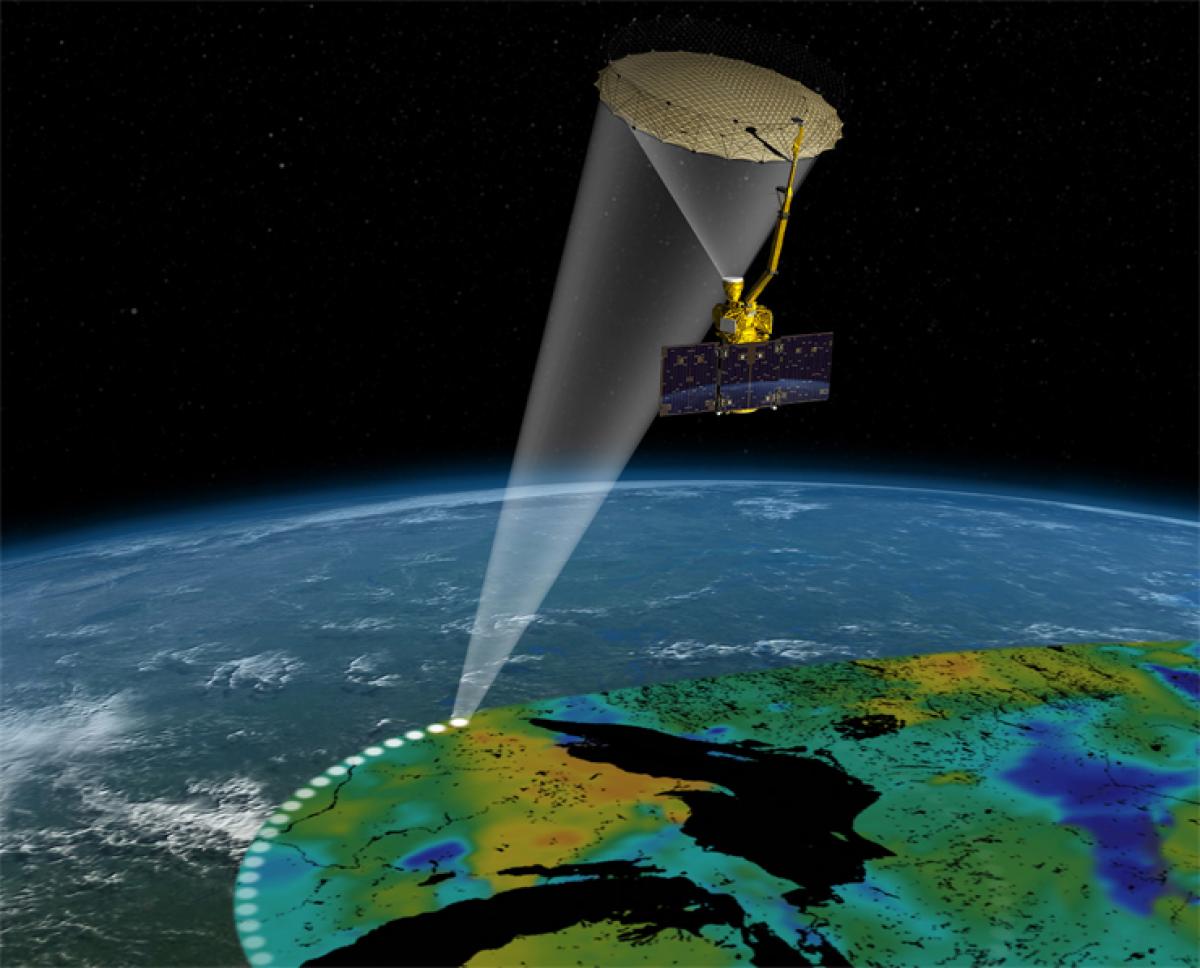Live
- 3rd Test: Head, Smith centuries flatten India on Day 2
- AAP Announces Final Candidate List For 2025 Delhi Assembly Elections, Kejriwal To Contest From New Delhi
- Bangladesh unrest has delayed execution of some vital projects: Tripura CM
- PIL in SC seeks direction to designate BMC as sole planning, sanctioning authority for Mumbai
- 3rd Test: Centuries from Head, Smith help dominant Australia feast on listless India
- AAP final list of 38 names in Delhi: Kejriwal, CM Atishi retain seats
- Tributes Paid to Sardar Vallabhbhai Patel on His Death Anniversary at CM Revanth Reddy's Residence
- In just one year, Bhajanlal govt wins hearts of people
- CM Chandrababu announces establishment of Potti Sriramulu Telugu University
- Sutume, Kissa win World 25K Kolkata; India's Gulveer makes course record
Just In

x
Highlights
The internationally known Assam tea has got a saviour from space -- NASA\'s soil mission that will rejuvenate the tea industry that is currently facing many hurdles including climate change.
The internationally known Assam tea has got a saviour from space -- NASA's soil mission that will rejuvenate the tea industry that is currently facing many hurdles including climate change.
.jpg)
NASA launched in January this year the "Soil Moisture Active Passive" (SMAP) mission that has already started beaming key science to map global soil moisture and detect whether soils are frozen or thawed.
NASA's soil moisture data will be of much help in planning field operations including irrigation, said R.M. Bhagat, chief scientist who is leading the climate research at the 104-year-old Tocklai Tea Research Institute (TRI) in Assam's Jorhat district, nearly 300 km from Guwahati.
"Tea gardens suffer intermittent drought-like situations. The scope of this data will expand eventually and will be of much help to farmers and planters in crop planning," Bhagat told IANS.
"With the help of SMAP, soil moisture in the top five-cm of soil on the Earth's surface will be measured from an orbiting observatory (or space vehicle) daily at around 10-km area resolution," Bhagat said.
NASA has initially included 50 institutions worldwide to get this data and TRA is one of them, he added.
Tea production in Assam is currently facing many challenges including climate change, less labour availability plus increase in wages, and less availability of chemicals to control pests due to implementation of the "plant protection code".
"Due to climate extremes -- too much or too less rainfall -- tea is becoming more vulnerable to pest attacks. Conditions are becoming more conducive for the growth and proliferation of certain pests," Bhagat told IANS.
The plant protection code was implemented this year to regulate chemicals in tea cultivation and to make tea a safe and healthy drink.
"The scope of the SMAP data will expand eventually and will be of much help to farmers and planters in crop planning," Bhagat stressed.
Assam annually produces over 600 million kg of tea in an area of over 300,000 hectares. This is part of the over 1,100 million kg of tea produced in India, of which over 200 million kg is exported, according to official data.
The first tea plantations in Assam were started by the East India Company in the 1830s. Assam tea - scientific name Camellia sinensis assamica -- produces rich, deep-amber liquor with a brisk, strong, distinctive malty taste.
Soild moisture indirectly affects people's lives as the topsoil is the one where food is grown. In the course of its observations, the SMAP will also determine if the ground is frozen or thawed in colder areas of the world.
According to Bhagat, the TRI has also tied up with other global organisations to improve the quality of Assam tea.
"We have tied up with Cranfield University of Britain to work on Soil Carbon stocks and climate resilience. Depleting soil carbon in soil results in deteriorating soil health. Thus, increasing soil carbon helps in nutrient build-up, good soil health and retention of both water and nutrients," he explained.
"This project will bring together researchers from Cranfield and Tocklai TRI to work jointly on this project for sustaining tea production in the face of climate change via studying Soil Carbon and ways and means to build this important component of soil," Bhagat told IANS.
TRI is also collaborating with London-based Ethical Tea Partnership (ETP), which will use its experiences in Kenya's tea plantations in formulating strategies in Assam, with more emphasis on small tea growers.
Research on all aspects of tea cultivation and processing is carried out at Tocklai, the oldest and largest research station of its kind in the world, whose advisory network covers 1,076 tea estates.
The new era of tea research in India began with the establishment of the Scientific Department of Indian Tea Association (ITA) in 1900.
Research was boosted with the creation of the Tocklai Experimental Station in 1911. The Tocklai Experimental Station is now known as the Tocklai Tea Research Institute.
The TRI is also working on other methods to increase tea production.
"Studies are under way to use charged manure/compost with high nutrients, bio-fertilizers integrated with chemical fertilizers to decrease the use of chemicals and maintain soil health, yet sustain and increase production," the scientist said.

Next Story
More Stories
ADVERTISEMENT
© 2024 Hyderabad Media House Limited/The Hans India. All rights reserved. Powered by hocalwire.com







